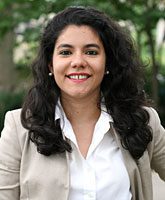Sonia Katyal
Associate Dean, Faculty Development and Research,
Co-Director, Berkeley Center for Law & Technology,
Roger J. Traynor Distinguished Professor of Law
Professor Sonia Katyal’s work focuses on the intersection of technology, intellectual property, and civil rights (including antidiscrimination, privacy, and freedom of speech).
Professor Katyal’s current projects focus on artificial intelligence and intellectual property; trademark law, branding and advertising; the intersection between the right to information and human rights; and a variety of projects on the intersection between art law, cultural heritage and new media. As a member of the university-wide Haas LGBTQ Citizenship Cluster, Professor Katyal also works on matters regarding law, gender and sexuality.
Professor Katyal’s recent publications include Technoheritage, in the California Law Review; Rethinking Private Accountability in the Age of Artificial Intelligence, in the UCLA Law Review; The Paradox of Source Code Secrecy, in the Cornell Law Review; Transparenthood in the Michigan Law Review (with Ilona Turner); Trademarks, Artificial Intelligence, and the Role of the Private Sector, also in the Berkeley Technology Law Journal (with Aniket Kesari); The Gender Panopticon in the UCLA Law Review (with Jessica Jung); and From Trade Secrecy to Seclusion in Georgetown Law Journal (with Charles Tait Graves). She has also previously published shorter pieces with the New York Times, Washington Post, CNN, Boston Globe’s Ideas section, Hyperallergic, Los Angeles Times, Slate, and the National Law Journal, and has also been cited by the Supreme Court.
Professor Katyal has won several awards for her work, including an honorable mention in the American Association of Law Schools Scholarly Papers Competition, a Yale Cybercrime Award, and is a three-time winner of a Dukeminier Award from the Williams Project at UCLA for her writing on gender and sexuality. Her recent articles, The Paradox of Source Code Secrecy, was selected for inclusion in the Best Intellectual Property articles of 2019; and From Trade Secrecy to Seclusion (with Tait Graves) won the Law, Science and Innovation/Intellectual Property Prize from the Sandra Day O’Connor College of Law in 2022.
During the Obama administration, Katyal was selected by U.S. Commerce Secretary Penny Pritzker to be part of the inaugural U.S. Commerce Department’s Digital Economy Board of Advisors.


























